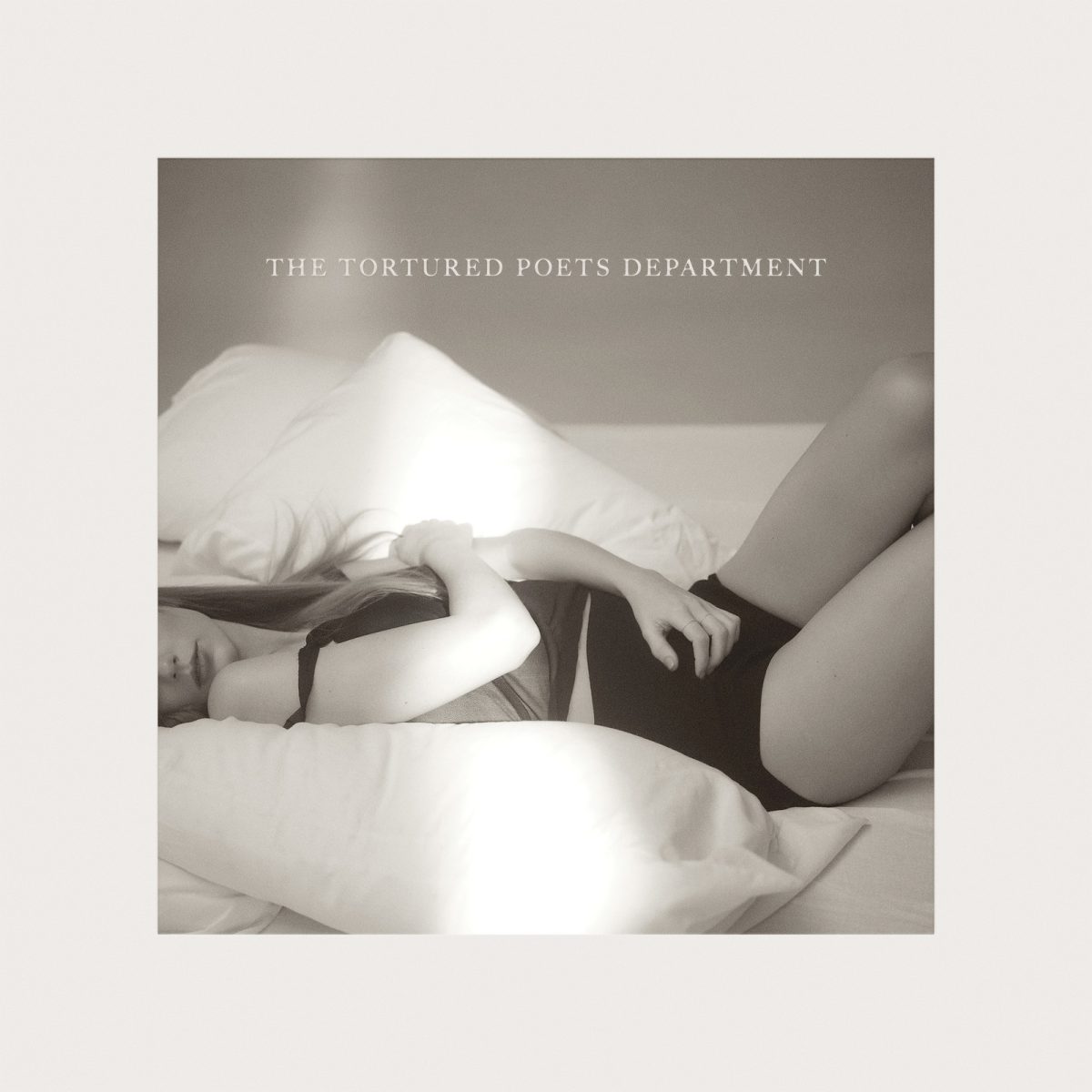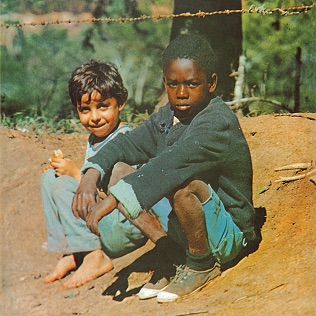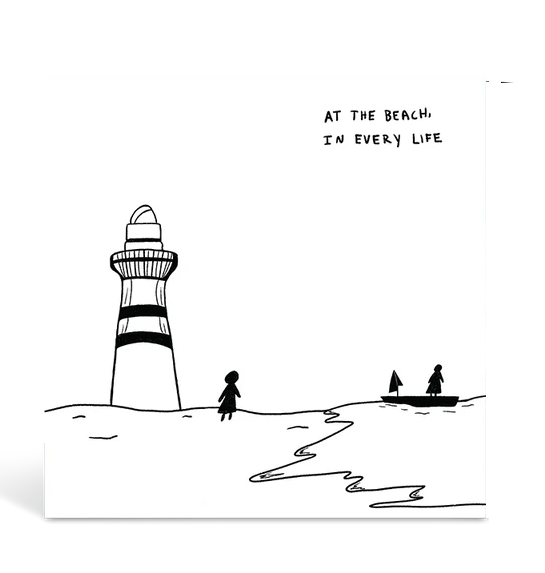The singer’s 14th studio album contains brilliant songs, but it’s a slow burn.
In a not-so-obscure corner of the internet ruled by a blonde superstar, you will find a plethora of seemingly random symbols, song lyrics and photographs being pored over like the works of Shakespeare. Nail polish colors encode for albums, pedestals signal birth years, “vaults” translate to secret songs…you get the idea. This is the world of Taylor Swift, whose impact on news media, entertainment culture, music and just about everything in general has been incalculable. Abundance seeps through everything she does: from 2019 to 2023, she released four albums, distributed four album re-recordings to gain back control of her masters, created a short film and embarked on the highest-grossing tour of all time.
Then, on February 4, 2024, during the 66th Grammys, Taylor Swift made history again. Online chatter had been growing about a possible announcement regarding a re-release of her album “reputation,” but instead, she announced a whole new album entitled “The Tortured Poets Department”. Immediately after, the internet exploded. As time ticked closer to April 19, the album release date, anticipation only grew higher. There were no singles, no excerpts released beforehand, only cryptic Instagram posts and official promotional Apple Music playlists that symbolized the five stages of grief. When “The Tortured Poets Department” was released, it quickly became forever ingrained in pop culture. On Spotify and Amazon Music, the album broke the record for most streamed album in a single day in history, amassing 1.76 billion global streams in its first week. Mere hours after the initial album was released, at 2 a.m. on April 19, Swift released yet another album called “The Anthology” (if you look for synonyms of productive in the thesaurus, you will find Taylor Swift). For the sake of brevity, this continuation of the album will not be covered in this review.
As I listened to “The Tortured Poets Department” for the first time, however, something felt off. While it had good songs, it didn’t seem to live up to the genius of her other albums. But as the week progressed, I became a convert. There is something inexplicably intoxicating about the album that draws the listener in only after the first few listens; it grows and grows on you until it reveals itself to its fullest extent.
Swift commences the album with the lead single “Fortnight” which includes a feature by Post Malone. It’s an understated, moody track where -like the rest of the album- the vocals take center stage. Despite her musical acumen, Swift is notorious for releasing lead singles that don’t represent the album as a whole (yes, I’m talking about “ME!”). Other times, she sacrifices musicality for expected commercial success. This can be seen in the songs “Anti-Hero” and “Shake It Off” (from her pop albums “Midnights” and “1989”, respectively) as each song has repetitive rhythms that appeal to the masses, but both fail to fully capture the magical depth of the albums they represent.
In contrast, “Fortnight” is paired with muted, even meditative production and poetic lyricism, signaling that Swift’s sensational popularity has shifted her to promote songs more emblematic of the full album. Indeed, Spotify reported that “Fortnight” received 25 million streams on its release, setting the record for most streams of a song in a single day. Perhaps the most startling thing about “Fortnight” is its vivid and brutally honest aches for revenge, as Swift sings, “I was a functioning alcoholic / ‘til no one noticed my new aesthetic … My husband is cheating / I want to kill him”.
Revenge in the form of violence is no stranger to her songs; in “Vigilante S***” and “no body, no crime” (as well as the first half of her sixth studio album, “reputation”), vengeance, usually directed at cheating men, is a central theme. “Fortnight” is by no means the best song on the album, but it’s refreshing to see Swift promoting a song so representative of the sound on “The Tortured Poets Department”.
The second song, which serves as the album’s title track, appears to reference her relationship with the singer Matty Healy from “The 1975”. Like all of her title tracks, “The Tortured Poets Department” (the song) introduces the motifs for the rest of the album; in this case, typewriters (which were used in the promotion for the album), and most importantly, the concept of weddings. Unfortunately, the song is somewhat of a disappointment; except for the occasional high notes in the chorus, it seems like a narration of poetry paired with a disjointed production.
The next few tracks are gorgeous. “Down Bad,” the fourth song on the album, is reminiscent of pop-infused sad bops like “Maroon” and “Would’ve Could’ve Should’ve” from her previous album “Midnights”. The lyrics are simpler than the rest of the album, but they still pack a punch, where cascades of breathy, glittery f-bombs take the center focus. But towards the end, as the song heightens in tension, it feels as though Jack Antonoff’s (her longtime musical parter and producer) production becomes overeager, to the point where the climax doesn’t seem to be that climactic: an issue that seems to plague a few other songs on the album. “Down Bad” is undoubtedly a great song, yet Swift has it in her to make it even greater.
Then comes the incredibly awaited track five, “So Long, London.” Swift’s track fives are known to encapsulate the most emotional aspect of the album, and past track fives include musical behemoths such as “All Too Well”, “The Archer”, “tolerate it” and “You’re On Your Own Kid”, the last of which seems to be stylistically closest to “So Long, London”. The song opens with haunting, operatic vocals evocative of a wedding ceremony, before plunging into a synthy, impassioned maelstrom that seems to serve as a post-mortem of her six-year-long relationship with the English actor Joe Alwyn. If the album is indeed a collection of musical poetry, then “So Long, London” is where Taylor Swift channeled her inner tortured poet. “And you say I abandoned the ship / But I was going down with it / My white knuckle dying grip / Holding tight to your quiet resentment,” she sings with a tone of despair.
Although most of “The Tortured Poets Department” (as well as the entirety of “The Anthology”) are solo songs, Swift embarks on a collaboration with the band “Florence + The Machine” on the song “Florida!!!,” listed as track eight on the album. In her introduction to the song on Amazon Music, Swift says that when coming up with “Florida!!!”, she wanted to invoke the feeling of “when you want to escape everything you’ve ever known” and beg the question: after bad decisions catch up to you, where do you go? The song is an absolute banger where Florence Welch’s and Taylor Swift’s vocals seamlessly mingle, producing the electrifying high that accompanies the song. The duo does say that Florida is “one hell of a drug.”
Following “Florida!!!” are the songs “Guilty as Sin?” and “Who’s Afraid of Little Old Me,” both of which easily live up to the challenge of succeeding “Florida!!!” with their catchy, vulnerable tunes. Then we get track 13 which, in case you didn’t know by this point, is Swift’s favorite number. Titled “I Can Do It With A Broken Heart,” the song seemed almost predestined to become viral. Its beachy,“1989” style with its upbeat production is in stark contrast to the lyrics, where she sings (albeit playfully), “I cry a lot but I am so productive / It’s an art,” something which most high schoolers can probably relate to (except for the part about being productive).
There is one song on the entire album that stands out for its raw candor and a spectacular, breathtaking bridge. Named by “Billboard” as the best song on “The Tortured Poets Department”, “The Smallest Man Who Ever Lived” is deceptively simple. And yet, across four minutes and four seconds, she manages to translate the inherent anger at someone who has wronged and taken advantage of you into beautiful, poetic verse. The opening score seems like a twist on the song “hoax” from her album “folklore,” as the quiet, tempered piano is practically the only thing accompanying Swift’s voice. A bit after the two-minute mark, however, the song metamorphosizes into an unrestrained takedown, as Swift belts, “I would’ve died for your sins / Instead I just died inside / And you deserve prison but you won’t get time … And I’ll forget you but I’ll never forgive / The smallest man who ever lived.” It is a masterpiece: a lucid, brutally honest song that shows that all Taylor Swift needs to make outstanding music is just herself. And maybe a piano.
Ultimately, “The Tortured Poets Department” is a solid musical achievement with an array of stunning songs. There are a few forgettable tracks, such as “I Can Fix Him (No Really I Can),” but most of the features do their job and deliver a complete listening experience. There is a unique sonic similarity across the entire album, which makes for smooth transitions between songs, but the production seems suffocating in far too many places, preventing Swift’s voice from reaching its full potential. Yet overall, Taylor Swift brings her most authentic self to “The Tortured Poets Department”, and consequently, her unimaginably exquisite lyricism more than makes up for any minor drawbacks. Over the years, many critics have tried and failed to pick apart Swift’s albums and label her into a box; with “Fearless,” she was country, “1989” made her pop, “folklore” turned her indie and so forth. Regardless, she continues to defy the expectations of perpetually producing the same style of music, and in “The Tortured Poets Department,” it’s hard to designate it as anything other than an amalgamation of her past. As time moves on and the world becomes polarized with greater division, maybe all we need to unite us is a mix of all viewpoints and cultures (and obviously music) to capture our amazing diversity. And in that sense, Taylor Swift delivers.










